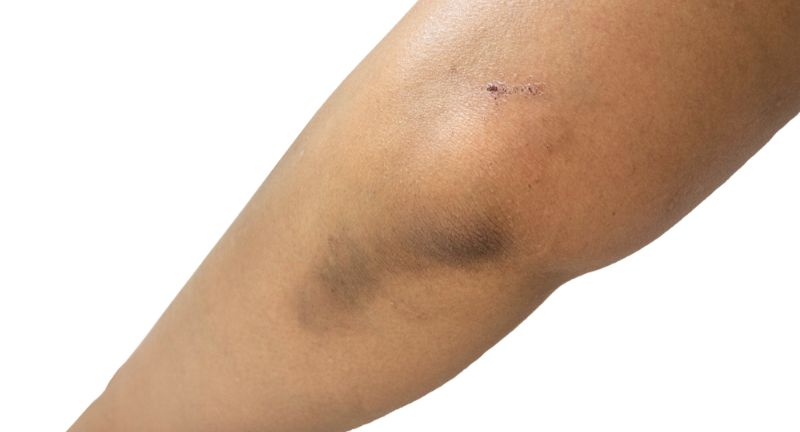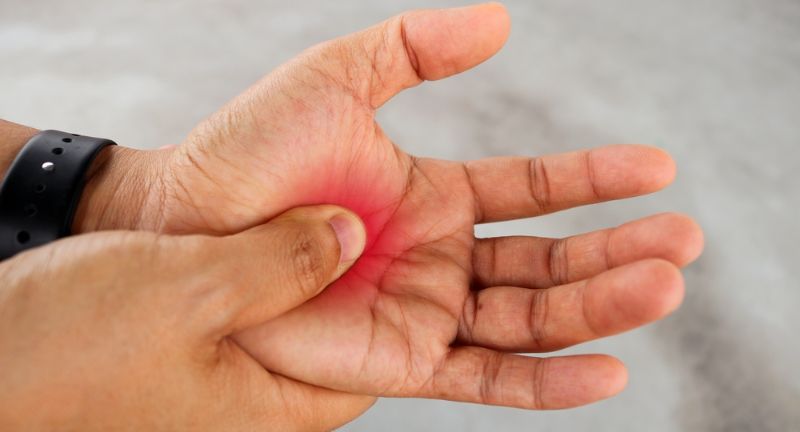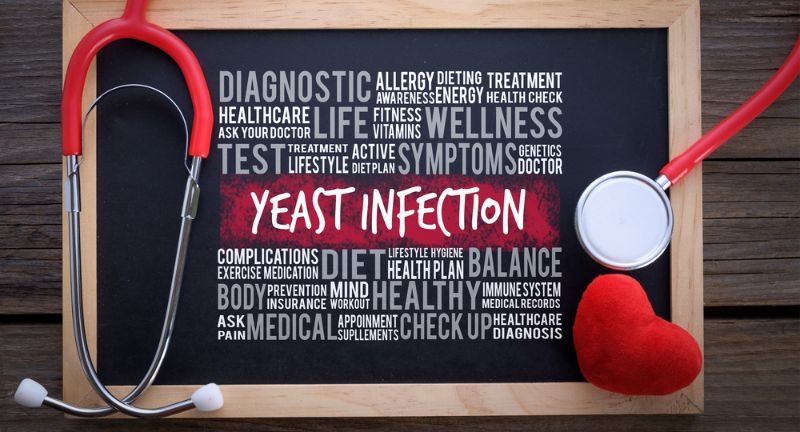HEALTH + FITNESS
18 Sneaky Signs You Could Be Pre-Diabetic
Published
4 months agoon

Shutterstock
Pre-diabetes is a condition that often sneaks up on people, with symptoms that can easily be mistaken for everyday issues. Many individuals don’t realize that their body is giving subtle signs that their blood sugar levels are out of balance. If left unchecked, pre-diabetes can progress to type 2 diabetes, a more serious condition that can lead to long-term health complications. Being aware of these sneaky symptoms can help you take action early and prevent the disease from worsening. Here are 18 signs to watch out for that may indicate you’re pre-diabetic.
Increased Thirst

Shutterstock
One of the sneaky signs of pre-diabetes is feeling unusually thirsty all the time. You may find yourself reaching for water more frequently, even when you’re not exercising or in hot weather. This excessive thirst occurs because high blood sugar forces your body to pull water from your tissues, leading to dehydration. It’s easy to overlook this as just being thirsty, but when it persists, it may signal a larger problem.
Frequent Urination

Shutterstock
Constantly needing to use the restroom, especially during the night, is another subtle indicator of pre-diabetes. This happens because your kidneys are working harder to flush out excess glucose from your bloodstream, resulting in more urine production. It’s a symptom that often goes unnoticed, as many attribute it to drinking more fluids. However, if you’re waking up multiple times at night to urinate, it could be a red flag.
Fatigue

Shutterstock
Feeling tired all the time, even after a full night’s sleep, is a common sign of pre-diabetes. Insulin resistance prevents your body from effectively using glucose for energy, leaving you feeling drained. You might think the fatigue is due to stress or lack of sleep, but it could actually be related to your blood sugar. This persistent exhaustion can interfere with daily life, making it hard to concentrate or stay active.
Unexplained Weight Loss

Shutterstock
Sudden and unexplained weight loss can be an early sign of pre-diabetes. When your body is unable to use glucose for energy, it begins burning fat and muscle instead. This can lead to unexpected weight loss, even if you’re not trying to lose weight. If you’ve noticed the pounds slipping away without changing your eating or exercise habits, it might be worth getting your blood sugar checked.
Blurry Vision

Shutterstock
Blurry vision is a sneaky symptom of pre-diabetes that many people brush off as just needing glasses. High blood sugar levels cause the lenses in your eyes to swell, distorting your vision. While this might improve as your blood sugar levels stabilize, it’s a sign that shouldn’t be ignored. If you’re noticing sudden changes in your eyesight, it’s important to get your blood sugar checked.
Frequent Infections

Shutterstock
Pre-diabetes can weaken your immune system, making you more prone to infections. This may manifest as recurring skin, gum, or urinary infections that seem to happen more frequently than usual. High blood sugar creates a favorable environment for bacteria and yeast, which thrive in sugary conditions. If you’re getting infections more often than normal, it could be a sign that your blood sugar levels are too high.
Slow-Healing Wounds

Shutterstock
Another subtle sign of pre-diabetes is when cuts, scrapes, or sores take longer than normal to heal. High blood sugar levels can damage your blood vessels, slowing down circulation and impairing the healing process. You may notice that even minor injuries take weeks to fully recover. This delayed healing is a sign that your body is struggling to repair itself due to elevated glucose levels.
Dark Patches of Skin

Shutterstock
Acanthosis nigricans, which causes velvety, dark patches of skin, is a common early sign of insulin resistance. These patches often appear on the neck, underarms, or groin area. The skin may feel thicker or even slightly raised, and this condition is more common in individuals who are overweight. If you notice any unusual darkening of your skin, it may be worth speaking to a healthcare professional.
Tingling or Numbness

Shutterstock
Tingling or numbness in your hands and feet can be an early indicator of nerve damage due to high blood sugar. This condition, known as neuropathy, often begins as a mild sensation but can worsen over time if left unchecked. It’s a sneaky sign because people often attribute it to poor circulation or other minor issues. However, if these sensations become persistent, it’s essential to get your blood sugar levels tested.
Increased Hunger

Shutterstock
Feeling constantly hungry, even after eating a meal, is a sign that your body isn’t effectively using the glucose in your blood for energy. This can happen because your cells are resistant to insulin, the hormone that allows glucose to enter cells. As a result, you may feel ravenous and crave more food, even though your body has plenty of energy stored. If your hunger seems insatiable, it could be a signal of pre-diabetes.
Irritability or Mood Swings

Shutterstock
Mood swings and irritability can be caused by fluctuating blood sugar levels, which affect how you feel emotionally. When your blood sugar spikes and crashes, it can leave you feeling anxious, short-tempered, or depressed. It’s easy to chalk this up to stress or a busy lifestyle, but persistent mood changes could be linked to pre-diabetes. If you’re noticing unusual shifts in your mood, it might be worth investigating your blood sugar levels.
Headaches

Shutterstock
Frequent headaches can be a symptom of pre-diabetes, especially if they coincide with blood sugar fluctuations. You might experience these headaches after eating sugary or carb-heavy meals, as your blood sugar spikes and then crashes. This rollercoaster effect on your glucose levels can leave you feeling drained and cause headaches. If you often have headaches after meals, it’s a good idea to monitor your blood sugar.
Trouble Focusing

Shutterstock
Having difficulty focusing or feeling mentally foggy could be related to pre-diabetes. When your blood sugar levels are out of balance, it can affect how well your brain functions, leaving you feeling forgetful or unfocused. You might notice it’s harder to complete tasks or stay alert throughout the day. This cognitive decline can be subtle but could be connected to how your body is processing glucose.
Excessive Sweating

Shutterstock
Experiencing night sweats or excessive sweating during the day can be a sign of fluctuating blood sugar levels. When your glucose levels drop too low, your body responds by triggering sweating as part of the fight-or-flight response. While occasional sweating might seem normal, frequent or unexplained bouts can indicate blood sugar instability. If this is happening regularly, it could be a sign of pre-diabetes.
Increased Cravings for Sugar or Carbs

Shutterstock
If you find yourself craving sugary or carb-heavy foods more than usual, it could be a sign of insulin resistance. Your body may be struggling to get glucose into cells, leading to intense cravings for quick sources of energy. These cravings can feel uncontrollable and might lead to overeating, which further exacerbates blood sugar issues. If you’re constantly drawn to sweets or starchy foods, it might be time to assess your glucose levels.
Dry Mouth

Shutterstock
Persistent dry mouth, even when you’re hydrated, is another sneaky sign of pre-diabetes. High blood sugar can cause your mouth to feel parched because your body is losing fluids through increased urination. It’s easy to dismiss this as just needing more water, but if it continues despite regular hydration, it may be linked to elevated glucose levels. Keeping an eye on this symptom could help you catch pre-diabetes early.
Frequent Yeast Infections

Shutterstock
Frequent yeast infections, particularly in the mouth, skin folds, or genital areas, can be a warning sign of high blood sugar. Yeast thrives in sugary environments, and elevated glucose levels provide the perfect conditions for infections to occur. If you’re getting yeast infections more often than usual, it could be a sign that your blood sugar levels are out of balance. This is a symptom that many people overlook but can be a key indicator of pre-diabetes.
High Blood Pressure

Shutterstock
Pre-diabetes is often associated with high blood pressure, as insulin resistance can lead to increased pressure in your blood vessels. Over time, this can put extra strain on your heart and increase your risk of cardiovascular problems. Many people with pre-diabetes don’t realize that their high blood pressure could be related to their blood sugar levels. If your blood pressure is consistently elevated, it might be worth checking your glucose levels as well.
Conclusion

Shutterstock
Recognizing the early signs of pre-diabetes is crucial in taking control of your health before the condition worsens. While these symptoms may seem minor or unrelated, they can serve as important warnings that your body isn’t processing blood sugar effectively. If you’re experiencing any of these signs, it’s essential to consult with a healthcare professional for testing and advice. Early detection allows you to make lifestyle changes that can reverse or manage pre-diabetes. Taking action now can help you avoid the serious complications of type 2 diabetes in the future.
Related Topics:

More From Lifestylogy
-


26 Foods That Are High In Gallic Acid And Why…
-


Healthy Tips for Navigating a Chaotic World
-


Give Your Boobs a Boost Naturally With These Exercises
-


Florida Woman Has Cockroach Removed From Ear After Nine Days
-


How to Make Your Own Hand Sanitizer and Wipes
-


Cleveland Clinic Testing Out Breast Cancer Vaccine
-


Kylie Jenner is “Determined” to Get Fit for Summer
-


When Is It Time to Throw Out Your Loofah? The…
-


This Food is the Number One Culprit for Food Poisoning